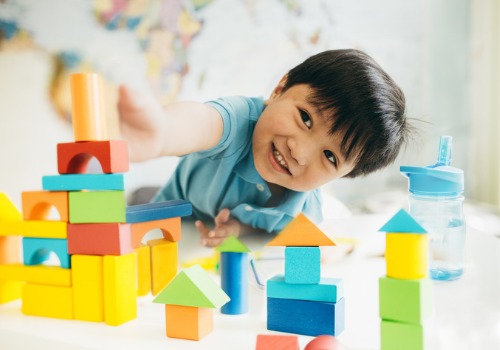5 Signs of Developmental Delay in Your Infant or Toddler
You want what’s best for your baby. From the moment your baby was born, you’ve likely been thinking about how you can provide the best care and life for your child. That’s why it can be so distressing to think your child might have developmental issues of some kind. The good news is that even if your child does have growth-related delays, if you find them early enough, you can intervene. And interventions can improve your child’s outcomes long into the future. The following five signs of developmental delay can help you identify where your child may need help.
Socialization is Lacking
As your child is learning and growing, one of the signs that they may have a delay in development is by watching their socialization. Early in a baby’s life, socialization starts with cuddling, singing, reading to your baby, and other basic interaction. Between six and eight weeks old, your baby should start making eye contact and smiling at you. Young toddlers tend to engage in parallel play, but if an older toddler isn’t engaging with other children, that may be a sign there’s an issue. In short, if you’re not seeing your child show interest in others, talk to their pediatrician to see if something may be standing in the way of that development.
There are Undeveloped Fine Motor Skills
One of the early signs of developmental delay is that your baby or toddler hasn’t mastered fine motor skills, which are important far into adulthood. If your child isn’t building fine motor skills to grasp objects, pick up small food, stack blocks, clap hands, or wave, developmental delay may be the culprit. Even if you’ve been working hard to build your child’s fine motor skills, this may be a sign of a developmental condition. Or your child may simply need additional help grasping these skills with the help of occupational therapy.
You Notice Difficulty in Rolling Over or Walking
Gross motor skills are necessary to control the larger muscles of the body, such as the arms, legs, and trunk of your body. Typically, babies start rolling over and holding toys around six months. By nine months they should sitting up without support, and between one year and 18 months, they should be pulling up, beginning to stand, followed closely by walking. If you aren’t seeing those milestones happen, it may be one of the more obvious signs of developmental delay.
Babbling or Talking Isn’t Happening
Language delays tend to be one of the first signs of development delays parents tend to notice. In fact, they’re one of the most common developmental delays that parents notice.
By six months old, they should start babbling. By their first year, they should be able to say “da-da” and “ma-ma.” And around the first year or year and a half, most babies will be saying a few words. Keep in mind that your child may express frustration with not being able to clearly communicate. And at times, circumstances like having an elder sibling who speaks for them may slow development. Don’t be afraid to discuss it with your doctor to get to the bottom of it.
Emotions are Tough to Manage
Toddlers can often seem irrational when it comes to emotions. After all, tantrums are a normal part of development. However, there are signs that can show stunted emotional development in a child. If your child isn’t willing to share toys, is withdrawing from play, seems more disruptive than other children, and can’t seem to engage in play chatter, you may want to discuss it with your doctor. Emotional signs of developmental delay may point to a situation you’ll want to work on as your child grows up.
PALS Can Help Your Child Grow
While signs of developmental delay can be scary for any parent, it doesn’t have to be. With a little help from therapists, including occupational or speech therapy practitioners, even more advanced delays in a child’s development can become more manageable. In addition, enrolling your child in a daycare center that focuses on helping your child flourish at every stage of development can help your child make great strides. PALS Praise & Leadership Schools were designed to help every child flourish and meet those major developmental milestones. That means you won’t feel alone in your child’s education. At PALS, we have created a curriculum that is tailored to your child’s needs. Every day, we work to build your child’s self-esteem, skills, and moral character. And we teach your child to think, reason, be responsible, achieve, excel, and communicate. We’ll give you peace of mind if you’re worried about your child’s development.

If you’re interested in learning more about PALS and how we can help your child succeed, we offer two campuses in the Peoria area for your convenience. Rest assured that both provide the same wonderful level of care for all children. You can reach us at our North Peoria campus, located at 2327 W Willow Knolls Rd in Peoria IL, at 309-691-4326. Or call us at our Downtown Peoria campus, located at 700 NE Greenleaf in Peoria IL, at 309-674-2938. Schedule a tour and talk with us today to learn more about the PALS Praise & Leadership Schools curriculum and to see how we can help your child flourish.